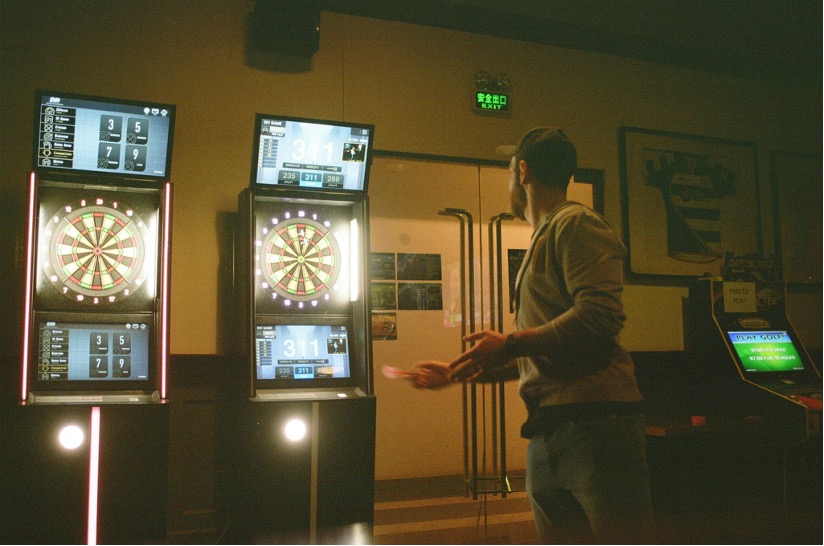
Game On: How Competitive Socialising is Reshaping UK Leisure Property

Photo by Adriaan Terblanche on Unsplash
In a year where traditional hospitality venues like pubs are under pressure, one part of the leisure sector continues to thrive: competitive socialising. These experience-led venues, blending games, food, and nightlife are growing in number across UK cities and becoming a sought-after use for large-format commercial units.
From high-tech darts to axe throwing and shuffleboard, competitive socialising taps into changing consumer behaviour, particularly among younger generations,who are looking for leisure activities that do not revolve around alcohol and are experiences they can share on social media.
It is proving to be a way to breathe new life into city centres, shopping malls, and repurposed retail spaces. For example, former Debenhams units are now home to mini golf and digital darts.
What is Competitive Socialising?
Competitive socialising venues combine interactive activities with food and drink — think mini golf with cocktails, karaoke with neon lights, or arcade racing with sharing platters.
Popular operators in the UK include:
- Flight Club (darts)
- Puttshack and Junkyard Golf Club (mini golf)
- Boom Battle Bar (multi-activity)
- F1 Arcade (racing simulators)
These venues appeal strongly to younger demographics who value shared experiences and memorable nights out. Many also cater to corporate events, birthdays, and hen/stag parties.
A New Opportunity for Property Owners
As demand for traditional retail units continues to evolve, competitive socialising has emerged as a dynamic tenant category with distinct property requirements:
- Unit sizes typically range from 8,000 to 20,000 sq ft
- Preference for open-plan, high-ceilinged spaces
- Often located in city centres, leisure schemes, or repurposed department stores
- Need for good transport links, evening footfall, and alcohol licensing.
Why Landlords Are Taking Notice
Beyond footfall, these venues offer several advantages for commercial landlords:
- Longer leases, with professional operators often backed by investors
- Attractive fit-outs that increase the overall appeal of the scheme
- Acts as an anchor tenant, (a major business in a large commercial space) especially in repositioned retail developments
- Aligns with placemaking goals in mixed-use regeneration projects
Landlords may also collaborate more closely on capital expenditure, recognising the long-term benefits of anchoring a destination with a high-performing leisure tenant.
What Are the Risks?
While growth is strong, not every venue type is future-proof. Fit-out costs can be considerable, and operators may face planning and licensing challenges — particularly where noise, alcohol, and late opening hours intersect with residential areas.
There may also be a chance that the market could become saturated.
The Future of Experience-Led Leisure
Looking ahead, the competitive socialising trend we could see are:
- Expansion into secondary cities and university towns
- Co-location with food halls, coworking hubs, and cinemas
- Daytime-friendly formats aimed at families and younger kids
- Greater integration with retail parks and shopping centres repositioning toward experience-led use
As landlords, developers, and investors seek future-proof uses for large spaces, competitive socialising presents a compelling option.
Looking to list or lease a leisure property?
NovaLoca connects commercial property professionals with thousands of occupiers searching for their next destination. Whether you’re marketing a former retail unit or seeking space for a growing activity-led brand, explore our listings or speak to our team today.
